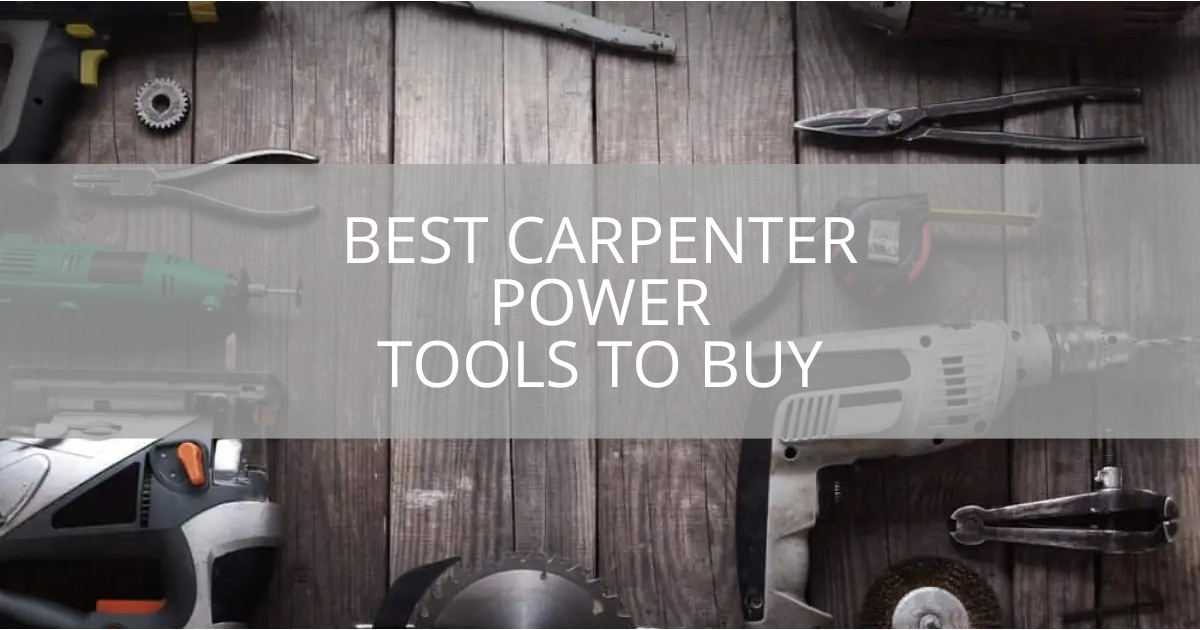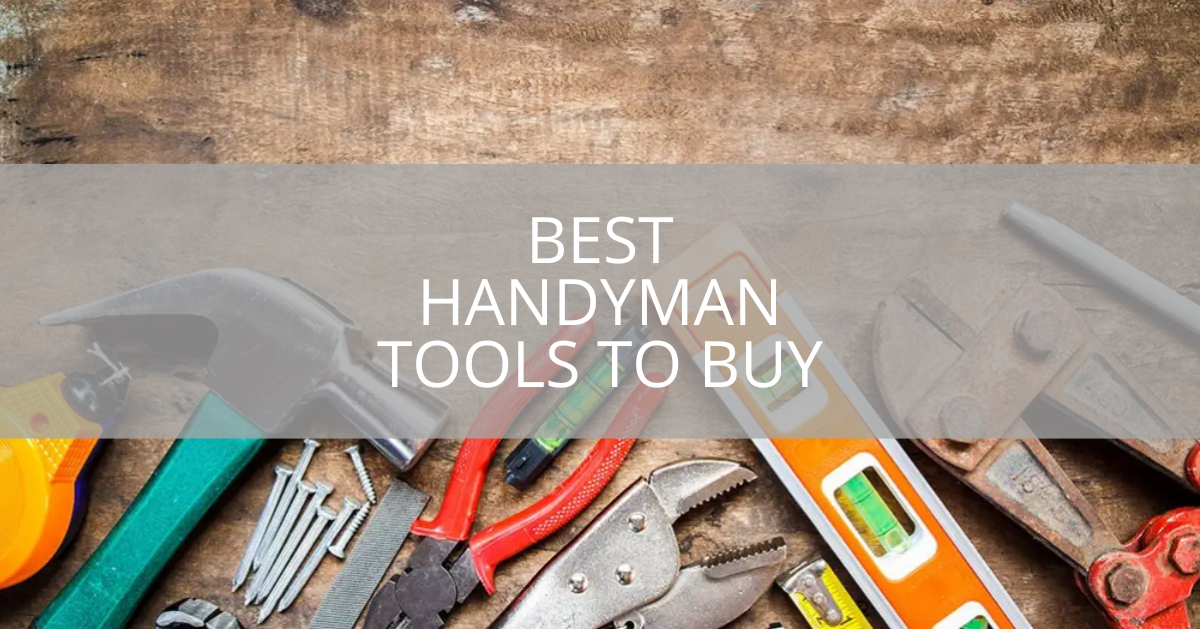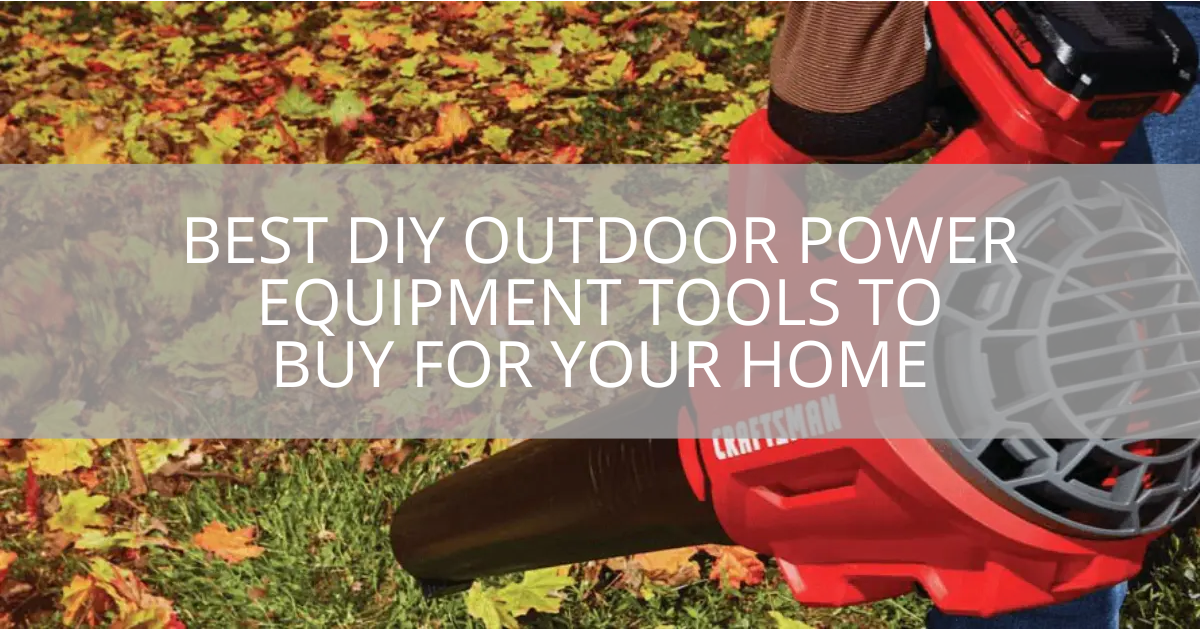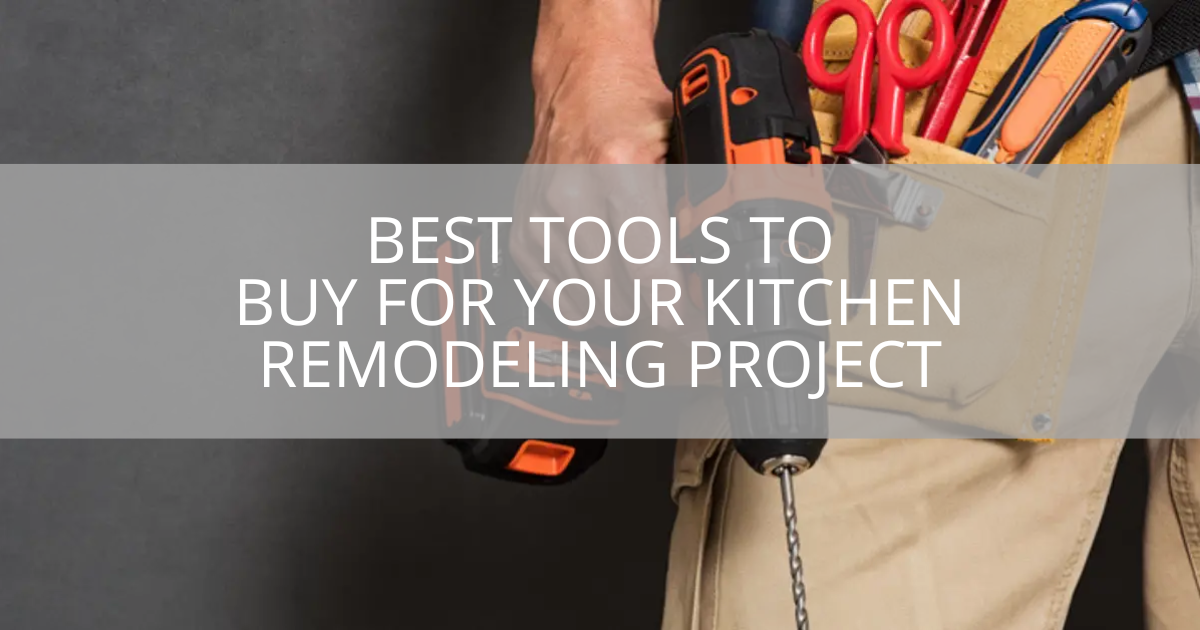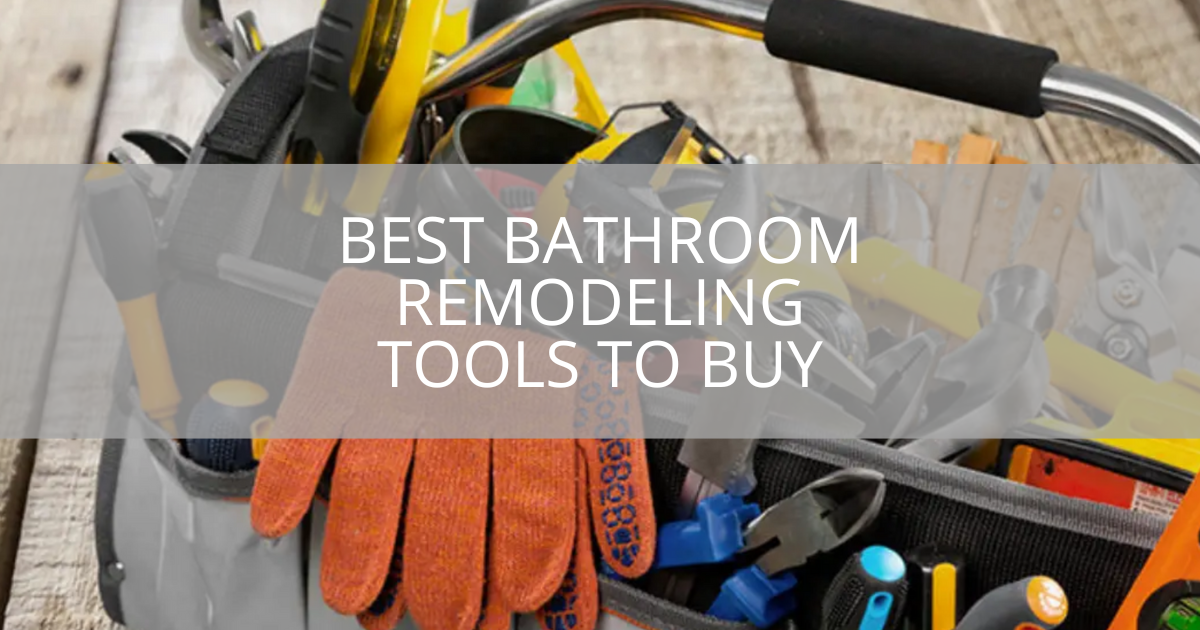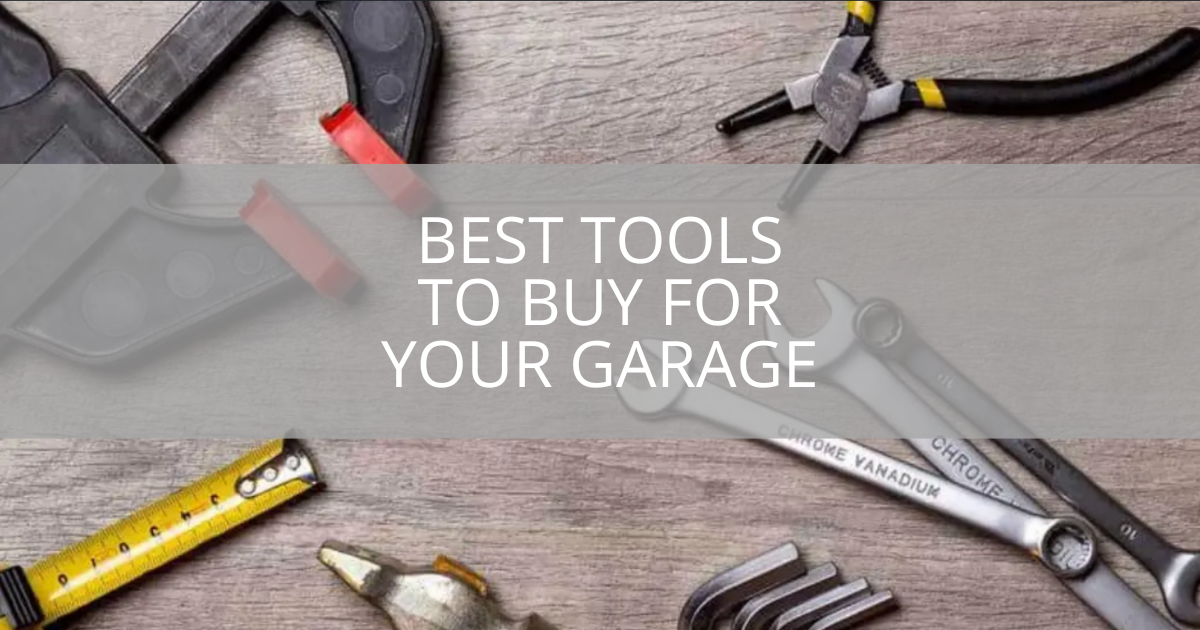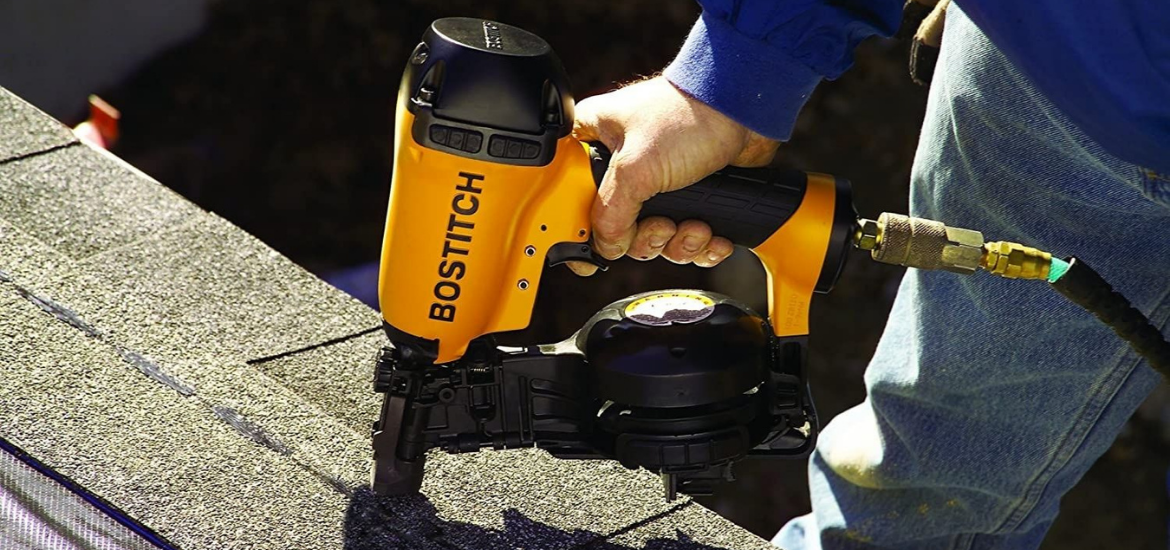
Featured Image: Amazon
You want to ensure you have the proper tool when it comes to repairing a roof. Ideally, if you’re fixing your roof, this isn’t something you’ll have to do frequently. Nevertheless, having a roofing nail gun may make the task a lot simpler. When a storm hits and you need to replace some tiles, you’ll be glad you have this powerful tool in your toolbox.
If you’re looking to buy a roofing nailer but aren’t sure where to start, you’ve come to the perfect spot. We will discuss all you need to know about roofing nail guns before you purchase one, and look at some of the finest roofing nail guns on the market right now.
- The sliding nail gun has lightweight aluminum housing for job site durability
- Zero nail lockout feature of the siding nailer eliminates dry firing and indicates when to reload the magazine
- Nosepiece of the coil siding nailer features carbide inserts for long-life performance
- Aggressive wear guards and skid pads protect the tool from damage on abrasive surfaces
- Quick-set adjustable depth guide sets nails to desire depths quickly and conveniently
- Hitachi Power Tools has renamed to Metabo HPT; Same great tools, with only a new name
- This product is easy to use.
- This product is highly durable
- This product is manufactured in China
- Drives 11 gauge (.120") , full round head roofing nails 3/4" 1-3/4" smooth shank.
- 360 degree adjustable exhaust
- The product is Coil Roofing Nailer
- Easy to use
- The product is manufactured in China
- Compact body design is 5-percent lighter for improved balance and control compared to previous model
- Tool-free adjustable shingle guide for accurate shingle placement
- Drives 7/8" to 1-3/4" Coil Roofing Nails
- 70-120 PSI Operating Pressure
- 120 Nail Coil Capacity
- Die Cast Aluminum Body
- Quick Release for Clearing Jams
- REDUCED TAR BUILD UP: Tar resistant nose is designed to resist tar 8x longer than conventional tools. When necessary, the SuperRoofer’s contact foot is easy to remove, clean and is also inexpensive to replace.
- SELF-CLEANING FILTER FOR RELIABLE OPERATIONS: The patented, self-cleaning maintenance free end cap filter, captures foreign substances before they can enter the tool and automatically safely ejects them when the air hose is disconnected.
- SIMPLE TOOL MAINTENANCE: A removable contact foot allows roofers to safely maintain and clean components of the tool without having to submerge the tool in corrosive cleaning agents.
- NO NAIL WASTE OR JAMS: A nose magnet holds the last nail in place, allowing contractors to use every nail in the coil; it also prevents the tool from jamming.
- CONSISTENTLY AND ACCURATELY SHOOTS NAILS: The depth adjustment dial allows operators to effortlessly drive nails into hard materials, and also control depth of drive when fastening soft materials, for a consistently polished finish.
- Drives 11 gauge full head coil roofing nails ranging from 7/8'' To 1-3/4''
- Selective actuation switch allows for either sequential or contact mode
- Tool-free adjustable depth control helps set nails properly; adjustable shingle guide allows for quick and consistent shingle spacing
- Durable and lightweight magnesium housing helps reduce user fatigue
- Skid-resistant pads/wear guards for safety and tool protection; contact safety With Carbide inserts for less wear and tear
Roofing Nail Gun Buying Guide
It’s critical to know what you’ll be utilizing a roofing nailer for before purchasing one. Obviously, you’ll use it for roofing, but how will you use it? Is it simply the roof of your shed or an extension to your home that you’re working on? Or are you a roofing contractor who will be using your nailer on a slew of jobs? While a low-cost roofing nailer may get you through one or two minor tasks, it’s unlikely to be adequate to do job after job. With that in mind, here are a few more things to think about.
Durability
If you’re a contractor, this is particularly essential since you want a tool that will endure.
Most roof nailers are intended to survive some exposure to the weather since they are meant to be used outside. They’re usually made of aluminum and steel, and they’re very sturdy.
Construction
It may seem ridiculous, but the way a roofing nailer feels may tell you a lot about its quality. You should feel like you’re carrying a tough piece of equipment when you take it up, despite how light it is. The higher the quality of your roofing nailer, the longer it will endure.
Versatility
When it comes to flexibility, there are two factors to consider. First and foremost, can the nailer be used for purposes other than roofing? Some will come with accessories that enable you to use them for other outside chores, such as siding installation.
Second, what kind of materials can you nail with your roofing nailer? Some are extremely adaptable and may be used on waterproof tar paper, asphalt and fiberglass shingles, vinyl and aluminum siding, and so forth.
Another item to consider is weatherproofing. It would be ideal if all roofing work could be completed during the warm, dry months, but this isn’t always possible. While you should never work on a roof while it’s raining, your roofing nailer will almost certainly be exposed to moisture. During the colder months, you’re even more likely to require it. Check to see whether your nailer can take a little water and won’t freeze in the cold.
Obviously, the more functions a roofing nailer has, the better purchase it will be. This is important to remember, particularly if you are spending a significant amount of money on your purchase.
Safety
Safety is always a priority, but utilizing this specific equipment on a roof adds an additional layer of risk and necessitates extra caution.
Rubber grips are a little detail that makes a huge impact. Not only will this make it simpler to grip and manage the nailer, but it will also offer some friction on a sloping roof. The grips really prevent the nailer from slipping and potentially tumbling away from you. A fall may damage your tool permanently, but it also poses a significant safety danger to anybody in the area below.
Injuries to the feet and hands are unfortunately frequent while using nail guns. When possible, use sequential mode and always use protective gear, particularly safety glasses.
Useful Accessories To Have In A Roofing Nail Gun
There are a few items that are great to have but don’t actually impact the performance of your coil nailer:
A case. It’s a good idea to have a sturdy plastic storage box on hand. It provides you someplace to store your gun when you’re not using it, even if it’s only to keep it dry at the end of the day until you need it again the following day.
Directional Exhaust. This is one of the things that you don’t know how useful until you put it to use. It’s a lot more pleasant to work if you can keep the trash and air out of your face.
Tool-less depth adjustment. It’s as simple as turning a dial. While you won’t achieve the same precision as a manual adjustment, some of the best nailers have created tool-free adjustments that are fairly close.
Jam clearing. While excellent firearms shouldn’t jam all that frequently, it’s unavoidable that you’ll have to deal with one at some point. Having a simple method to break out of a jam may help you feel less frustrated and get back to work faster.
Other Factors To Consider When Buying A Roofing Nail Gun
Because there are so many various roofing nailers to choose from, it’s a good idea to familiarize yourself with the characteristics of each before making a purchase. We’ll go over some of the differences in roofing nailers in our purchasing guide so you can determine which one is perfect for you.
- Pneumatic or Cordless Power Supply?
The first choice you’ll have to make is whether you want a pneumatic or cordless roofing nailer. A rechargeable battery & a butane gas canister are placed inside a cordless roofing nail gun. With an electric roofing nailer, you have more freedom since all you have to do is make sure the battery is charged beforehand, and you can work on your roof without having to worry about cables getting your way. You may also buy extra backup batteries to put on the roof with you in case your main battery dies.
- Nail Type: Can all nail sizes be accommodated by roofing nail guns?
When purchasing coil roofing nails for a nail gun, be sure to verify the size of nails that the roofing nailer can handle. If you’re a professional, you should get a roofing nailer that can accept a wide variety of roofing nails so you can utilize it for any project. A decent nailer should be able to handle a variety of thicknesses ranging from 7/8″ to 1.75″. It’s possible that a roofing nailer isn’t the best equipment for the task and that a roofing staple gun is required.
- Drive Depth: Is it simple to adjust?
The roofing nail gun must be able to vary the depth of drive with which the nail is placed since roofs are constructed of a range of materials. It’s beneficial if your roofing nailer offers a simple method to modify this to make nail gun repair work go more smoothly and efficiently. Some tools feature a scrolling wheel for adjusting the depth of drive, while others have a trigger system for doing so. It’s ideal to choose a nail gun with a tool-free adjustment feature like the Dewalt roofing nailer, since otherwise, it may be time-consuming and difficult.
Conclusion:
Choosing a decent roofing nailer may be challenging due to the fact that there are some powerful ones on the market with impressive promises. Our top seven picks demonstrate this, and they’re all reliable and capable of completing even the most challenging roofing projects. Because of how many tasks it may be used for, we believe the Bostitch Coil Roofing Nailer is the most flexible option and a favorite among homeowners.
This Bostitch roofing nailer is solid and fast, capable of driving 100 nails per minute. When the magazine runs empty, zero nail lockout prevents the nailer from firing. Then, for quick loading, utilize the unique single-action side canister. Open it, replace the coil of nails, and you’re good to go.
This nailer is unique in that it utilizes contact tip automatic firing. This is an excellent method for big projects because it allows you to cover a wide area by bouncing over the surface and firing the nail when the tip strikes the substance. To ensure that the nose is robust enough to survive this technique, it includes a carbide inlay.
You also get tool-free depth of drive adjustments with five pre-sets so you can make your choice fast and simply get back to work.
It doesn’t come with an air hose connection, but if you have a toolbox, you’re likely to have one on hand. It also doesn’t include a carrying case, which is cumbersome after you’ve completed the task. However, they are minor flaws.
To view our Amazon Associates Disclaimer, please click here.









